The Five Closest U.S. Presidential Elections
In racing, whether horse or auto or foot, they call it a photo finish. That’s a result that’s so close that it’s almost impossible to discern with the naked eye, necessitating careful examination of a still picture to determine the winner. While you can’t resolve an election with a simple photo, history is loaded with contests that have been, at many points, too close to call. Though the rule of law and an orderly transition have been the norms in the United States since its inception, that’s not to say that arriving at a winner hasn’t on occasion been a rocky or contentious ordeal. With that in mind, here are the five closest presidential elections in the history of the United States.
Before digging in, one acknowledgement that you have to make is that the election is decided by the quirk of all quirks, the electoral college. The electoral college’s votes decide the outcome of the election, regardless of the outcome of the popular votes; though most presidential elections have “matched up” in terms of who won both the popular and electoral majorities, there have been five separate occasions when the “winner” lost the popular vote but was nevertheless conferred the presidency by the electoral college. Since the college is the final arbiter of victory, this list will be concerned with the closet elections in terms of the college; if you’re curious about the five closest in terms of the popular vote, those were: Kennedy over Nixon, 1960 (popular margin of 500,000 votes); Garfield over Hancock, 1880 (7,368 votes); Gore over Bush, 2000 (Gore had 500,000 more votes, but lost via the electoral college); Tilden over Hayes, 1876 (if you’re saying you don’t remember a President Tilden, you’re right; Tilden’s 250,000 more popular votes couldn’t tip Hayes’s electoral victory); and John Quincy Adams over Andrew Jackson (just wait).
So then, here are the closest presidential elections in terms of the electoral college.
5. Woodrow Wilson vs. Charles Evans Hughes (1916)
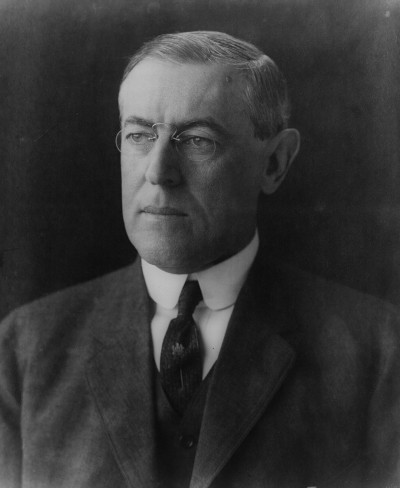
Hughes was the former Republican governor of New York and a Supreme Court justice, and Wilson was the incumbent president. Wilson campaigned heavily on the fact that he had thus far kept the U.S. out of World War I. Ultimately, the desire to keep America out of the war proved to be too strong a force for Hughes to overcome. Wilson received 277 electoral votes to Hughes’s 254. In a historic bit of irony, the U.S. was fully immersed in World War I by April of the following year.
4. John Adams vs. Thomas Jefferson (1796)
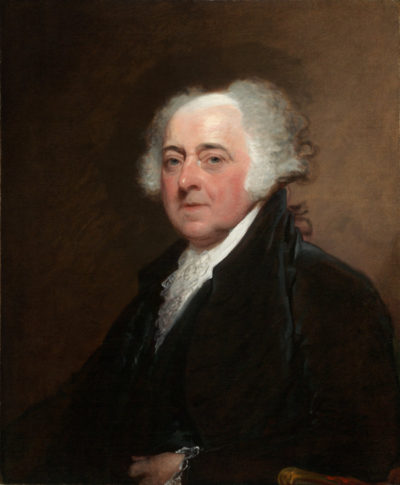
Adams and Jefferson had a complicated, sometimes fiery, relationship. They were friends in the Continental Congress, served under first president George Washington together (with Adams as vice president and Jefferson as secretary of state), and later became bitter political rivals. Though they eventually mended fences and had years of correspondence with one another before dying on the same day (July 4, 1826), the 1796 election was one of their first heated moments of competition. Washington had the opportunity to run for another (third) term, but opted out. Adams and Jefferson both ran with running mates, but by a quirk of the rules that would later be altered in 1804 by the 12th Amendment, electors of the electoral college could vote for each person separately regardless of running mate, giving Adams 71 votes and Jefferson 68. By the rules as they stood, Adams became president, and his opponent became his vice president.
Honorable Mention: Thomas Jefferson vs. John Adams (1800)
This doesn’t quite count because of its overall strangeness, and it’s a situation that wouldn’t happen again today due to rules updates and the 12th Amendment. In a rematch of 1796, Jefferson and Adams ran against one another. However, this time there were formalized tickets, and Jefferson ran with Aaron Burr, while Adams had Charles Pinckney as his running mate. The rules being what they were, electors could cast votes for the individuals, rather than the ticket, so it ended up that Jefferson and Burr were tied with 73 electoral votes. That led to the election being decided in the House of Representatives, with Alexander Hamilton famously influencing the vote for Jefferson (the events of the election were described, albeit in a somewhat fictionalized manner, in “The Election of 1800” in Hamilton: An American Musical).
3. George W. Bush vs. Al Gore (2000)
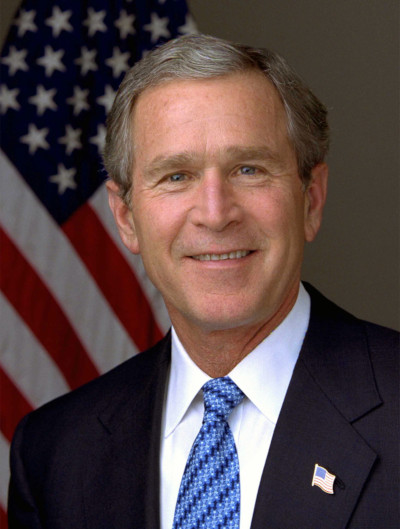
We’ve already established that Gore won the overall popular vote. Of course, it all comes down to the electoral side. At issue was the fate of Florida’s 25 electoral votes, which would be the tipping point for either candidate. Things were so close that Gore called Bush to concede, and then took his concession back. Florida went into a statewide machine recount, as the popular vote would determine the disposition of the electoral vote; Gore also asked for a manual recount in four crucial counties. The Bush campaign sued to stop the recount, which triggered a run of decisions and appeals that went up to the Supreme Court. The Supreme Court ordered the recount stopped by December 12; at the stoppage, Bush was ahead by 537 votes. Florida’s electoral votes went to Bush, and he became president by a margin of 271 to 266.
2. Rutherford B. Hayes vs. Samuel Tilden (1876)
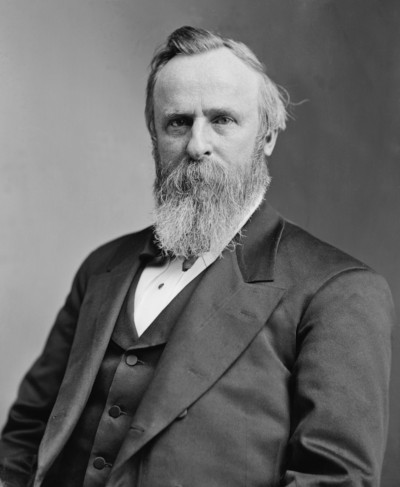
This would be the closest election (in fact, the Post once called it the “worst election”) if it weren’t for the unprecedented action that followed in the Number One slot. The initial electoral count showed Tilden ahead of Hayes by a margin of 184 to 165. The 20 votes of Oregon, Florida, South Carolina, and Louisiana remained in dispute, with both sides declaring victory. Wheeling and dealing led to an agreement that’s called the Compromise of 1877; the states offered their electoral votes to Hayes if he would essentially end Reconstruction and withdraw remaining Union troops from the South. The deal was struck, and Hayes defeated Tilden by a single electoral vote, 185 to 184.
1. 1824: John Quincy Adams vs. Andrew Jackson
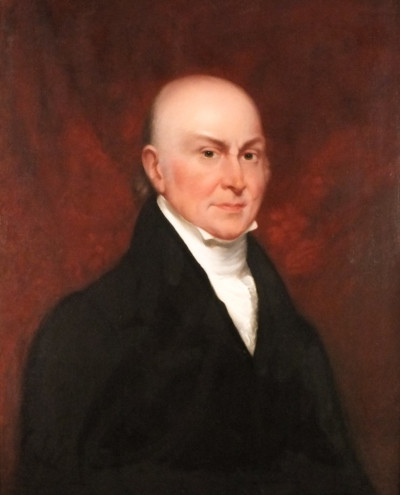
Going into 1824, there were four proper candidates: Secretary of State (and son of John Adams) John Quincy Adams, Tennessee Senator Andrew Jackson, Secretary of the Treasury William Crawford, and House Speaker from Kentucky, Henry Clay. Vice presidential candidates were voted on separately; in fact, Clay and Jackson would both receive votes in the category. The field of four candidates split the electoral vote; while Jackson initially had the most, he did not have enough for the electoral threshold. The breakdown was Jackson with 99, Adams with 84, Crawford with 41, and Clay with 37. With no majority winner, the decision then went to the House of Representatives, where each state would get one vote agreed upon by their reps. The 12th Amendment limited the field to three, so Clay was out. However, Clay, who hated Jackson, actively worked to get representatives from areas where he earned votes to support Adams. Adams won 13 states, and the presidency; Jackson finished with 7, and Crawford, 4. Jackson was enraged, as he had won the popular vote and the most electoral votes, but still lost. Making matters worse, Adams appointed Clay to secretary of state. Jackson would allege corruption, making it a centerpiece of his campaign; it helped him ride to victory in his rematch with Adams in 1828.
Featured image: andriano.cz / Shutterstock
11 Love Letters from Presidents That Will Make You Melt (or Blush)
We know that presidents have their hidden selves. But the love letters of some presidents show the unexpectedly romantic side of our chief executives. Here are excerpts from the love letters of eleven of our presidents.
- George Washington was known to be reserved and even austere, but one letter from June 23, 1775, hints at the warm (if not quite rising to “passionate”) feelings he directed to Martha.
I go [from Philadelphia] fully trusting in that Providence, which has been more bountiful to me than I deserve, & in full confidence of a happy meeting with you sometime in the Fall—I have not time to add more, as I am surrounded with Company to take leave of me—I retain an unalterable affection for you, which neither time or distance can change…
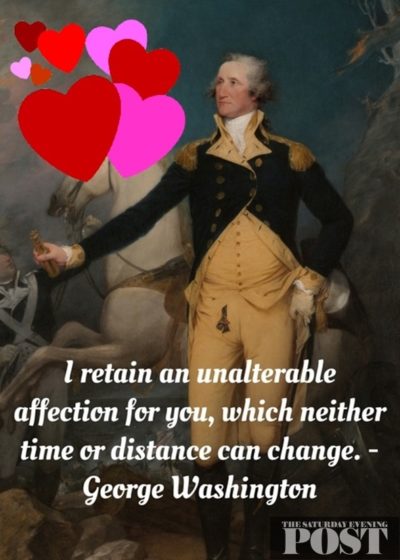
- John Adams, on the other hand, freely expressed his love for his wife, Abigail, who returned his feelings in a lively correspondence. Addressing one letter to “Miss Adorable” on October 4, 1762, he wrote:
By the same Token that the Bearer [Adams himself] hereof sat up with you last night I hereby order you to give him, as many Kisses, and as many Hours of your Company after 9 O’Clock as he shall please to Demand and charge them to my Account… I presume I have good Right to draw upon you for the Kisses as I have given two three Millions at least, when one has been received, and of Consequence, the Account between us is immensely in favor of yours.
- John Tyler’s photographs show nothing of the passionate man revealed in this December 5, 1812, letter to his fiancée, Letitia Christian, three months before their marriage:
From the first moment of my acquaintance with you I felt the influence of genuine affection; but now, when I reflect upon the sacrifice which you make to virtue and to feeling, by conferring your hand on one who has nothing to boast of, but an honest and upright soul and a heart of purest love, I feel gratitude super-added to affection for you. Indeed, I so esteem myself most rich in possessing you… to ensure your happiness is now my only object — and whether I float or sink in the stream of fortune, you may be assured of this, that I shall never cease to love you. Suffer me to assure you of my constant esteem and affection, and believe me to be Yrs. Most affectionately, John Tyler
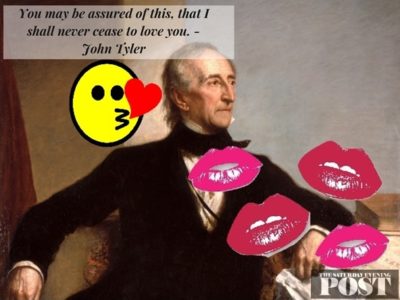
- Chester A. Arthur appears to have been a devoted spouse to Ellen Lewis Herndon. Here is his birthday letter to her from August 30, 1857:
This is your birth-day — my own precious darling — my own Nell. The remembrance came with my first waking in the early morning — as the thought of you always does and as I kissed your dear image, darling, my heart was full to overflowing with love and prayer for you!
How full of joy and happiness the world seemed to me, for I felt that you are my own Nell — that you love me!
I was happy and thanked God that he had so blessed me!
I would that the next [birthday] may find me with you, and that I may tell you all I would wish, all that my heart is now too full for me to write. — My heart is full indeed for my thoughts have been of your all the day.
Good night. May God bless and keep you always my darling.
Your own Chester
- On October 7, 1880, Theodore Roosevelt wrote to his nineteen-year-old fiancée Alice Lee of his love.
Oh my darling, I do so hope and pray I can make you happy. I shall try very hard to be as unselfish and sunny tempered as you are, and I shall save you from every care I can. My own true love, you have made my happiness almost too great; and I feel I can do so little for you in return. I worship you so that it seems almost desecration to touch you, and yet when I am with you I can hardly let you a moment out of my arms. My purest queen, no man was worthy of your love; but I shall try very hard to deserve it, at least in. Goodbye, my own heart’s darling. Your Loving Thee
- Woodrow Wilson’s first met Edith Bolling in 1915, and fell head-over-heels in love. He was so infatuated that he would break into a dance, singing “Oh, You Beautiful Doll.” Teddy Roosevelt, who despised Wilson, wouldn’t believe it. He said, “No evidence could ever make the American people believe that a man like Woodrow Wilson, cast so perfectly as the apothecary’s clerk, could ever play Romeo.Yet Wilson could write Edith notes like this:
You are more wonderful and lovely in my eyes than you ever were before; and my pride and joy and gratitude that you should love me with such a perfect love are beyond all expression, except in some great poem which I cannot write.
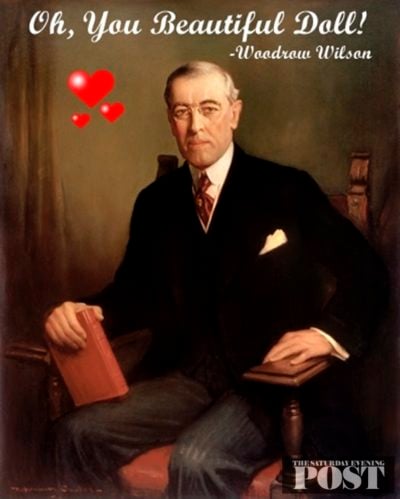
- When it comes to rating presidents by their love letters, Warren G. Harding’s name should have an asterisk beside it. He had a loveless marriage to Florence Kling De Wolfe, but he had plenty of love to express to Carrie Fulton Phillips. They started a 15-year affair in 1905, and he often wrote her passionate, explicit notes.Harding’s letters to Phillips—over 1000 of them—were made public in 2014. Harding was confident that she would burn them, as he directed her to do. “They are too inflammable to keep,” he wrote her. Unfortunately, she saved them, enabling future generations to be embarrassed for the late president.
My Carrie, Beloved and Adored, I do love you so… I wonder if you realize how much — how faithfully, how gladly… how passionately. Yes you do know the last, you must have felt the proof.
Honestly, I hurt with the insatiate longing, until I feel that there will never be any relief untiI I take a long, deep, wild draught on your lips and then bury my face on your pillowing breasts. Oh, Carrie! I want the solace you only can give. It is awful to hunger so and be so wholly denied…
Wouldn’t you like to get sopping wet out on Superior — not the lake — for the joy of fevered fondling and melting kisses? Wouldn’t you like to make the suspected occupant of the next room jealous of the joys he could not know, as we did in morning communion at Richmond?
- Harry Truman was as plain-spoken in love as in everything else. On December 21, 1911, wrote his girlfriend, Bess Wallace.
I suppose that I am too crazy about you anyway. Every time I see you I get more so, if it is possible. I know I haven’t any right to, but there are certain things that can’t be helped and that is one of them. I wouldn’t help it if I could, you know.
Writing from Berlin, 33 years later, Truman told 60-year-old Bess, whom he’d married in 1919, how much a long-distance call made him miss her.
It made me terribly home sick when I talked with you yesterday morning. It seemed as if you were just around the corner, if 6,000 miles can be just around the corner. I spent the day after the call trying to think up reasons why I should bust up the Conference and go home.
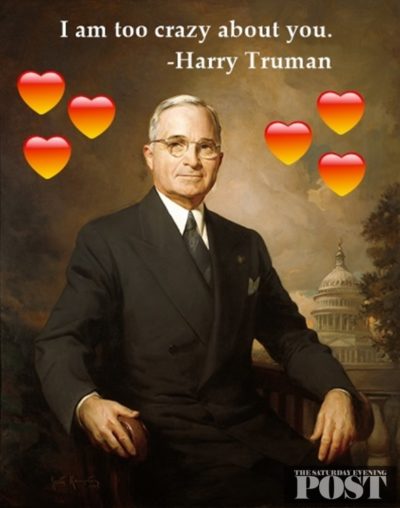
- When Richard Nixon fell for Pat Ryan, he fell hard. He proposed to her on their first date. When she didn’t accept, an undaunted Nixon agreed to drive her on dates with other men, just to be with her. And he wrote her love letters, like this undated example:
Every day and every night I want to see you and be with you. Yet I have no feeling of selfish ownership or jealousy. Let’s go for a long ride Sunday; let’s go to the mountains weekends; let’s read books in front of fires; most of all, let’s really grow together and find the happiness we know is ours.
- George H. W. Bush has never got over the thrill of marrying Barbara Pierce. On January 6, 1994, he wrote her:
Will you marry me? Whoops. I forgot you did that 49 years ago today. I was very happy on that day in 1945, but I’m even happier today. You give me joy that few men know. I’ve climbed perhaps the highest mountain in the world, but even that cannot hold a candle to being Barbara’s husband.
- But of all the presidents, the love-letter master was probably Ronald Reagan, who wrote highly romantic notes to his wife Nancy Davis throughout their marriage. On Valentine’s Day, 1960, he wrote her:
Feb. 14 may be the date they observe and call Valentine’s day but that is for people of only ordinary luck. I happen to have a “Valentine Life” which started on March 4 1952 [their wedding anniversary] and will continue as long as I have you. Therefore realizing the importance of this to me, will you be my Valentine from now on and for ever and ever? Ya see my choice is limited, a Valentine life or no life because I love you very much.
